A lot of participants tend to comment on one or two areas of interest to them – and they tend to do so very quickly after the event! As you might be beginning to suspect, that’s not the approach we’re taking here! We’ve been discussing the event, what we learned, and what we took away.
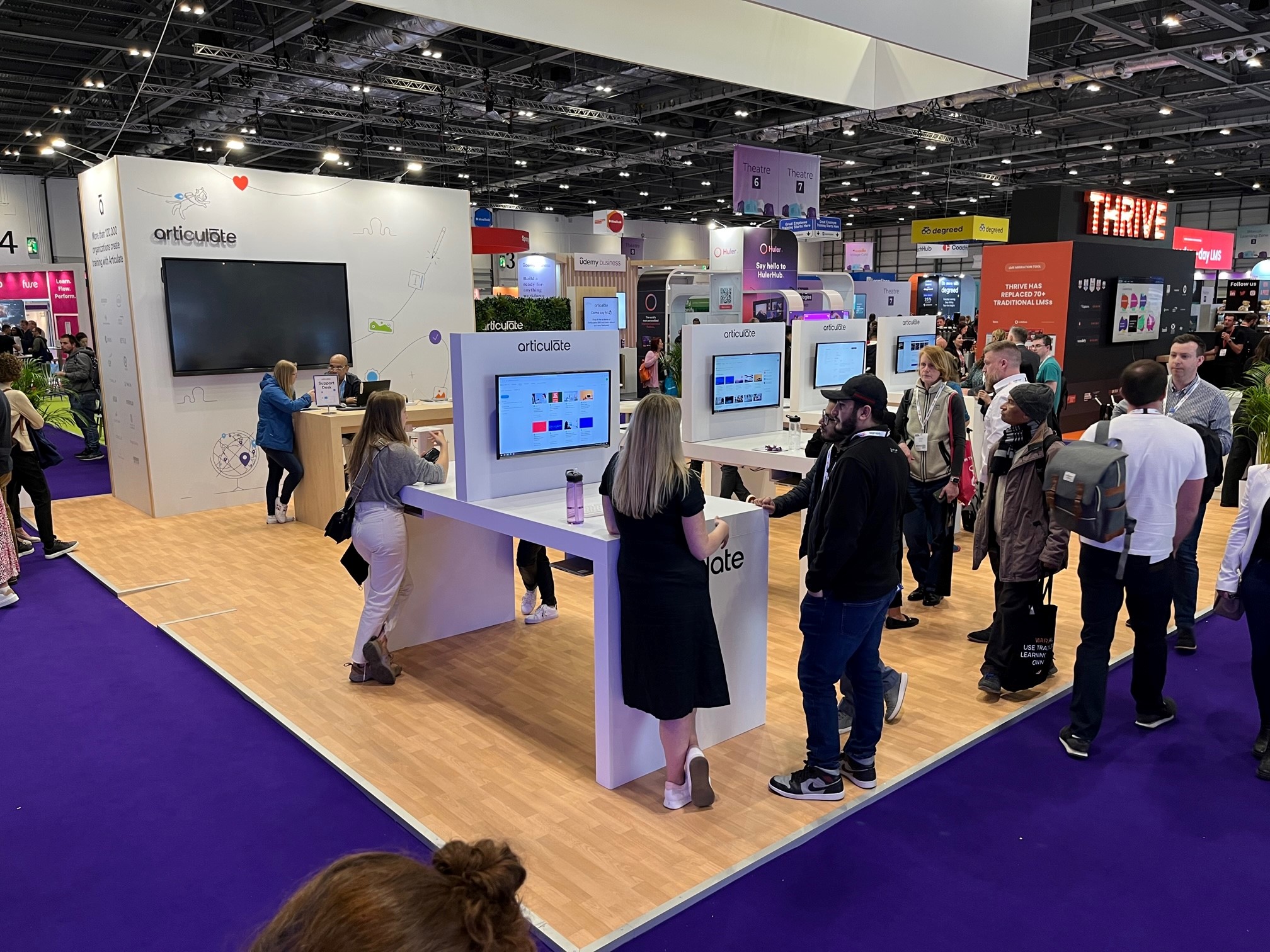
First, we have to talk about AI. It had a huge presence – in content creation, curation, and coaching. Anyone who’s looked at any generative AIs can see the potential for content creation. AI can save time and effort here, though presenters were keen to emphasise that this needs to be fact-checked. Presenters also tended to explain that their AI authoring tool produces human-editable output – a further, tacit, recognition that AI-generated content just might not give us exactly what we need.
AI for curation has been around for a few years. Happily, we have moved on from the era of “Netflix for learning”, and there are some great solutions here that make it easy to create learning pathways, find interesting and relevant content when it’s needed, increasing employee performance and productivity.
And then there’s AI for coaching. Coaching or mentoring are key parts of a workplace learning strategy that relies on reflection, learning from experience, and learning from others. Over the past few years, there have been attempts to scale it up, usually relying on templates, and structured application of frameworks such as GROW or FUEL, linked to SMART goals. This can be effective, though it can feel formulaic or mechanical. If you’re going to do that anyway, why not use an AI coach? One presenter made the comment that human coaches get bored going over the same ground from one session to the next, but an AI coach won’t get bored. And they’ve had strong results using AI coaches. I think this is a great example of playing to the strengths of AI – so long as the coachees’ expectations are managed, and they know what they’re letting themselves in for.
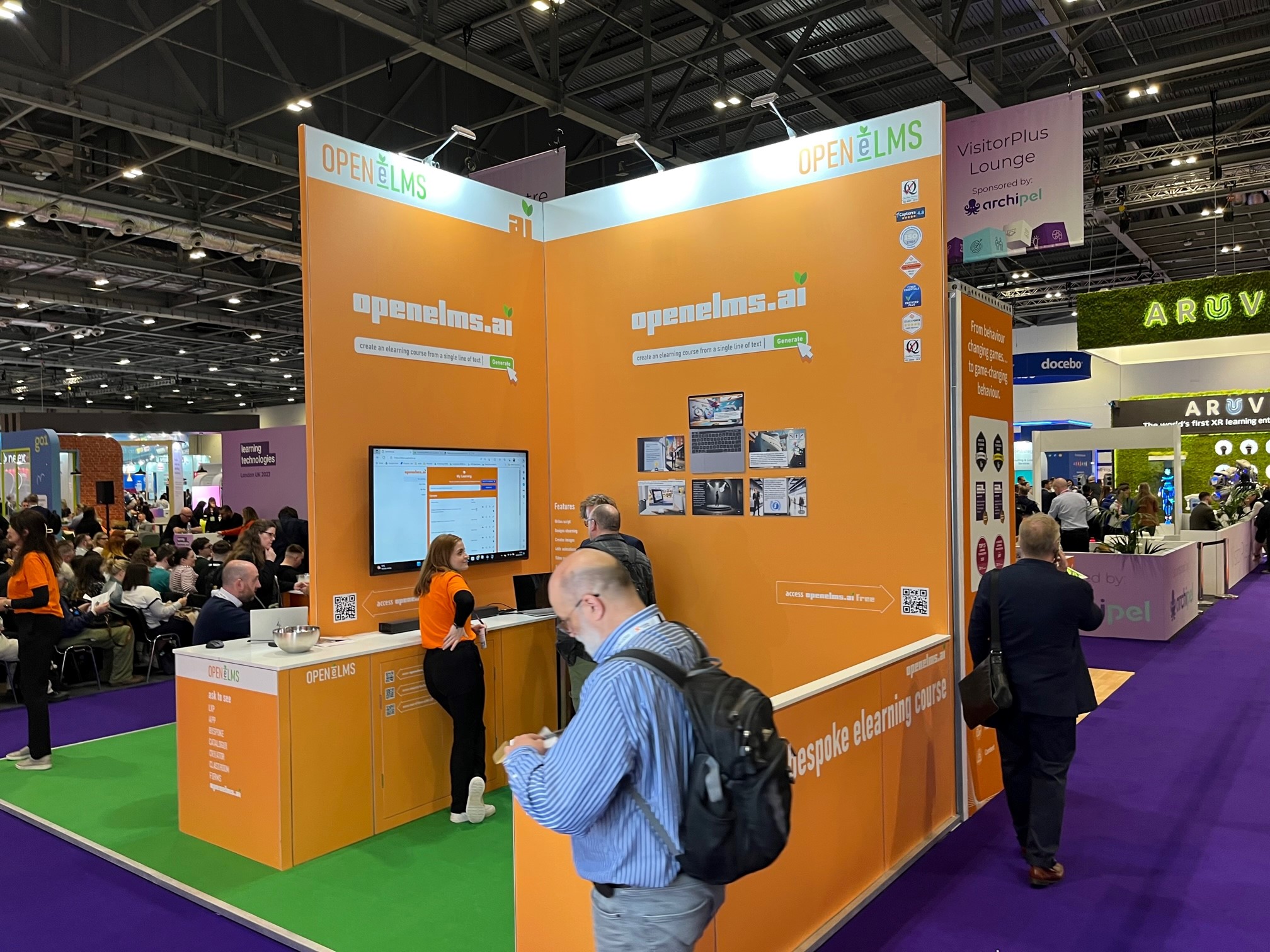
A second trend that we noticed is that skills and skills-based approaches are thriving. They fit the AI curation model. They fit with the level of immersion that is possible with VR-based solutions. They fit with coaching, and helping employees to grow and develop in specific ways. They fit with a contemporary approach to HR, quiet hiring, future-proofing and other efforts to build adaptability and survivability into corporate life.
The final trend was a very human one: there was so much activity around networking, socialising, sharing, community building. As learning professionals, we talk to clients about the importance of collaborative learning, providing opportunities for learners to network, share experiences, provide advice and support, and generally have meaningful conversations. We know about social learning, the power of dialogue, and that we learn through connections. But do we practice this ourselves? Well, we’re pleased to report that – based on our own behaviour and our observations of others – yes, we do.
Collaboration, knowledge sharing, engaging content, networking, and meaningful conversations – all activities necessary to building and maintaining a successful community are knowledge – were very much in evidence at LT2023. Everywhere, people were talking, sharing stories, catching up, talking about what they’d seen at the show. The free seminars provided plenty of food for thought and prompts for conversation. Organisations such as The Learning Network were busy, with members and others stopping by. Even the staff on the stands (at least those we visited) who were obviously keen to promote their products and services, were also keen to chat and share their experiences in the industry. We learned a lot, and we hope that others learned from us! This was a timely reminder to continue to encourage social learning in our workplace learning initiatives, to maximise the benefit to learners and the organisation.
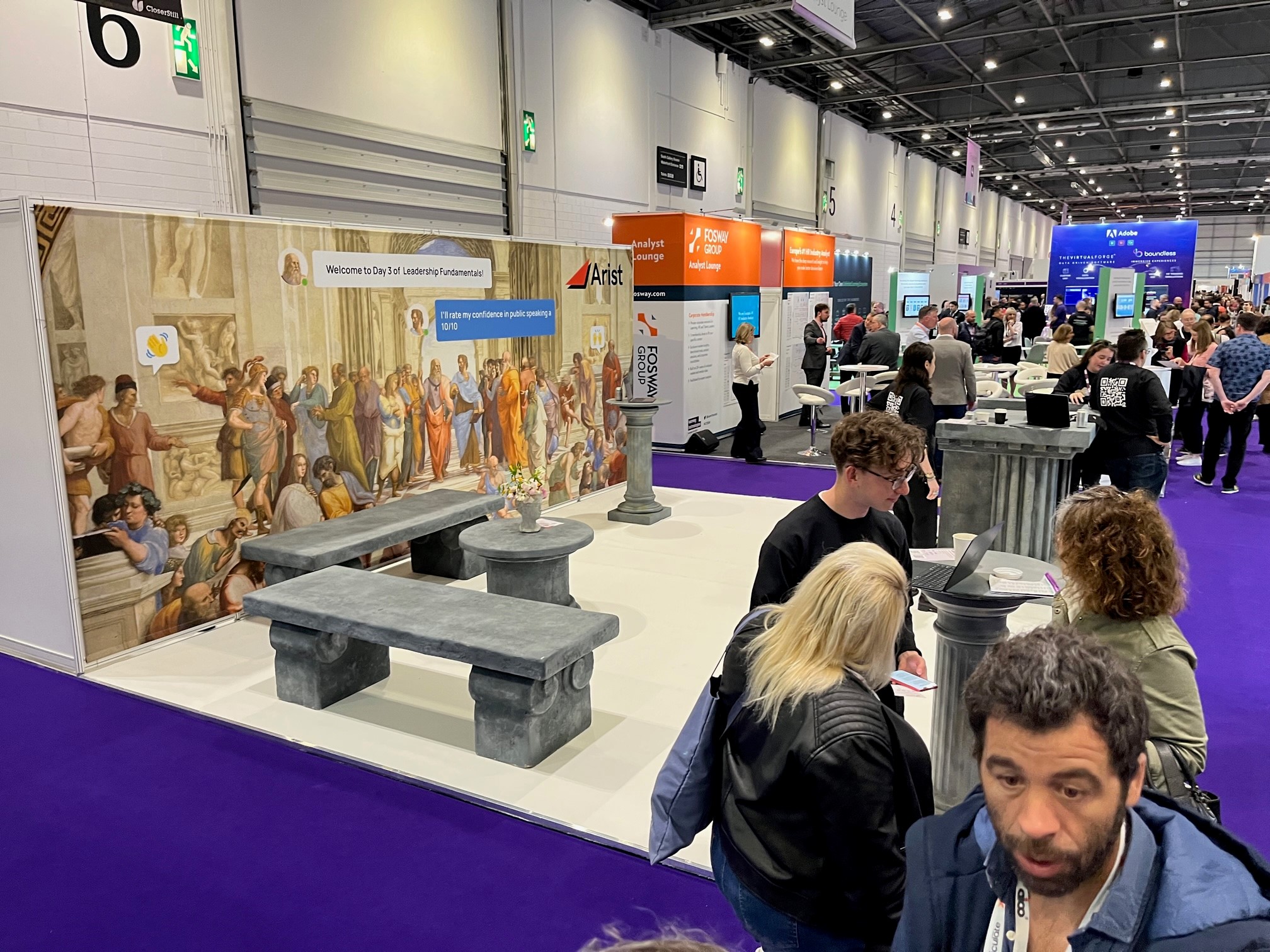
Rewind a few years and Learning Technologies was an event primarily for the techies: a chance to find out about new products or features, meet other techies and discuss the pros and cons, the wins and woes of implementing a new LMS or other platform / technology. Over time, it became more focused on L&D, and adopted a much stronger focus on sales. Now, it’s a lot more balanced. Learning tech is no longer separate from L&D: it is a fundamental part, and it is normalised. The conversations people were having weren’t about tech: they were about learning. For the first time in a long time, the event felt like part of a community for learning.
Talk to us today if you would like to find out how we can help you with your L&D offering!



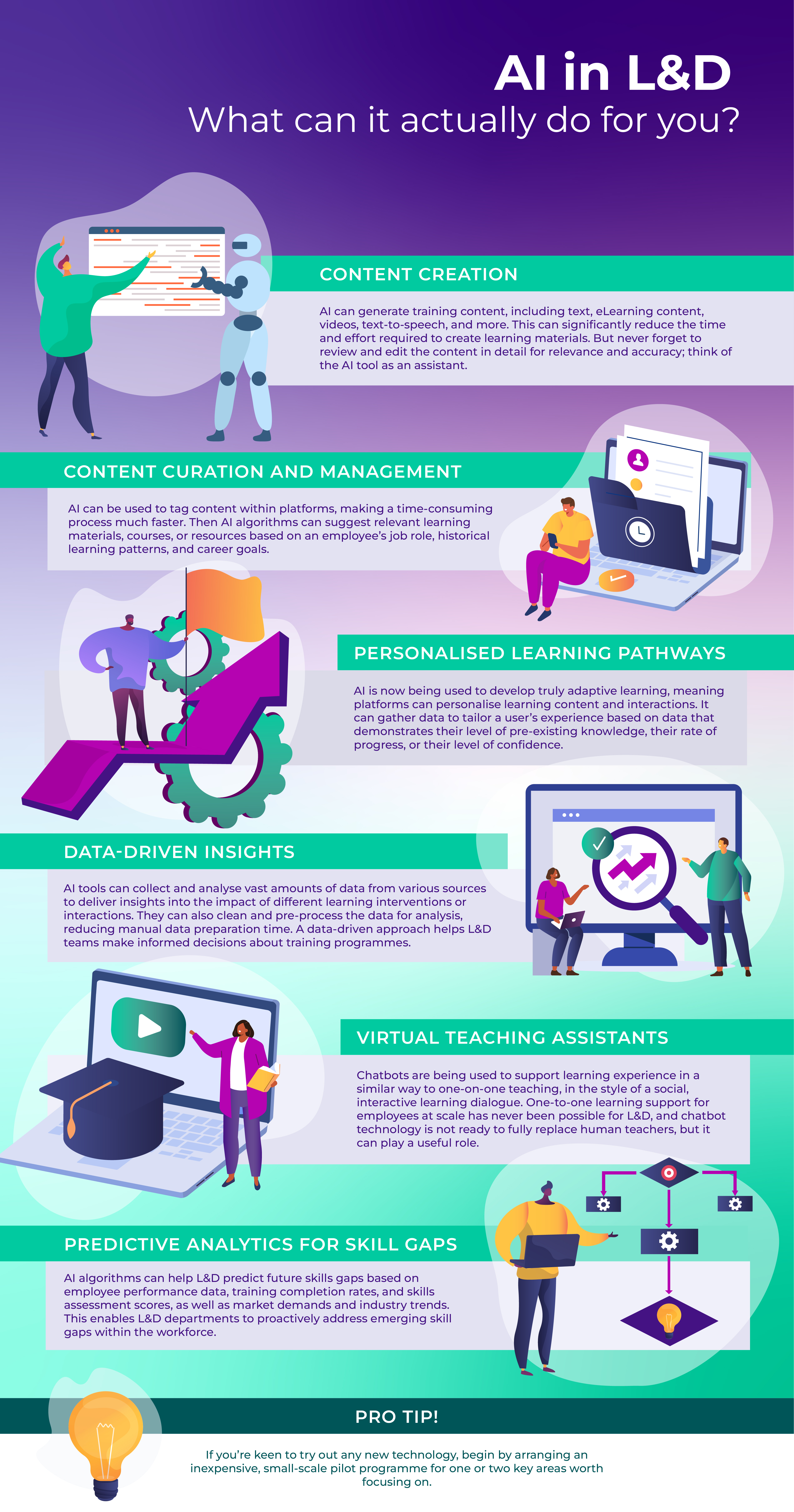

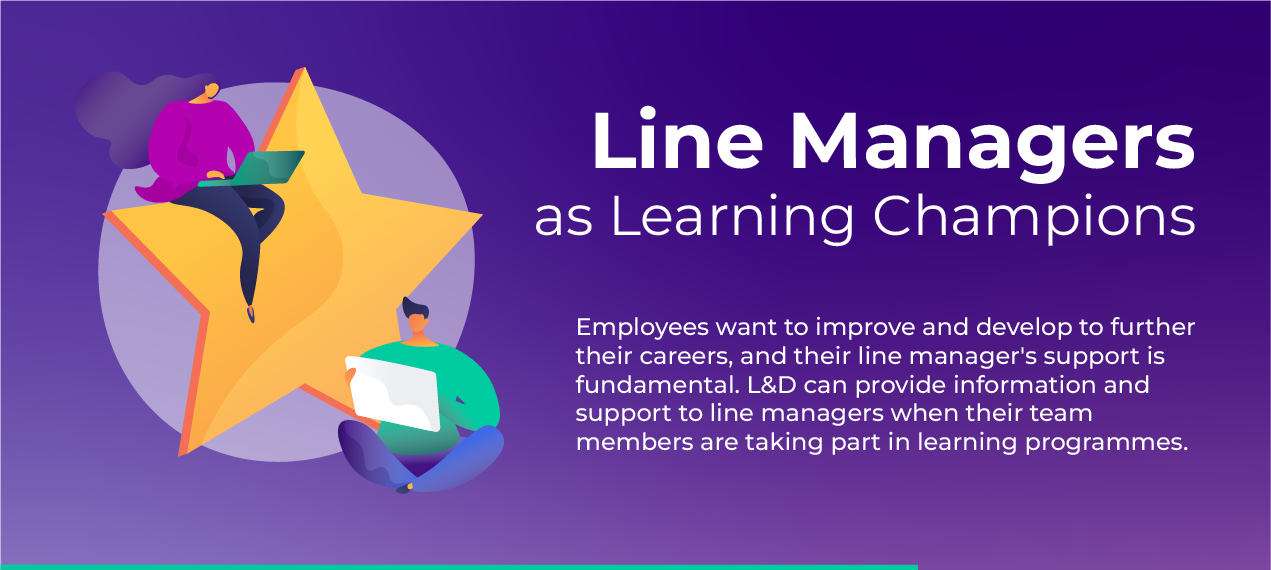

Is this article interesting?